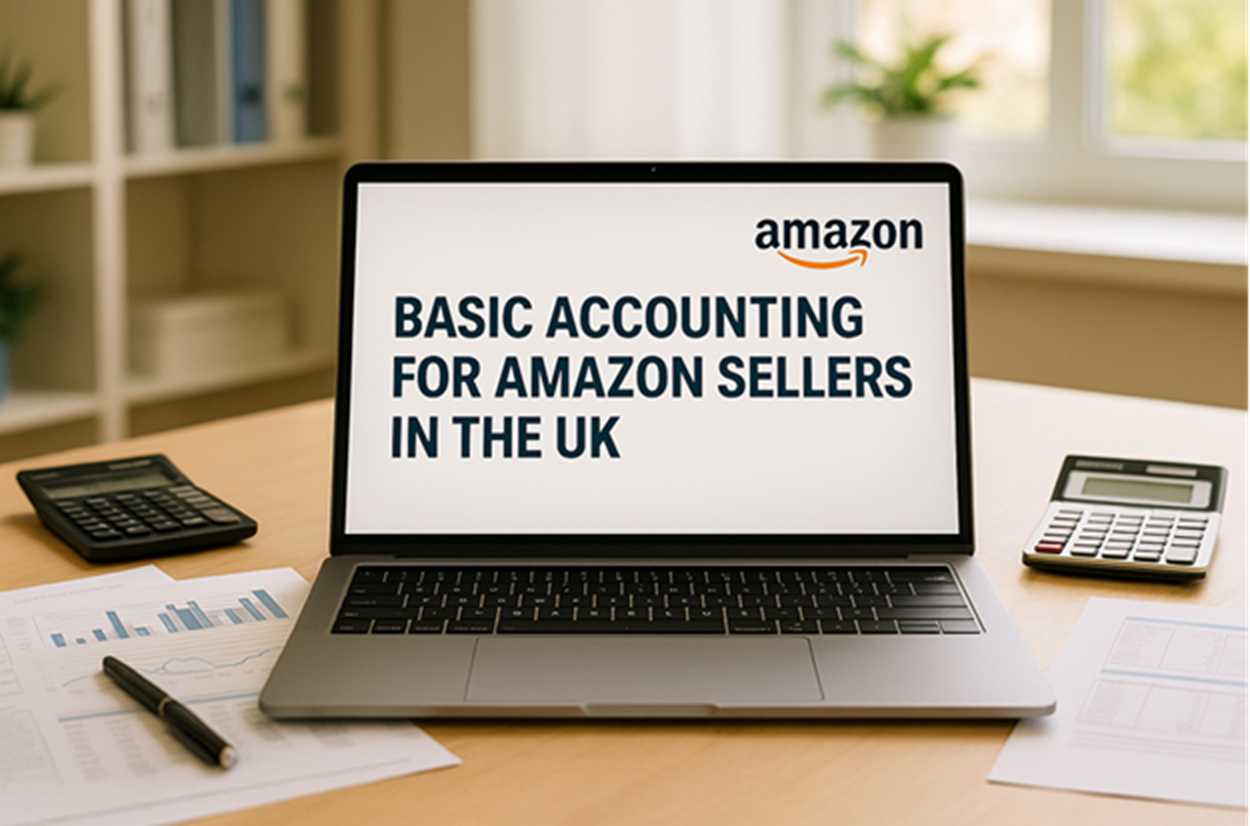Essential Accounting for UK Amazon Sellers
Selling on Amazon.co.uk is a powerful way to build a business, but financial management is key to long-term success and staying compliant with HMRC. Neglecting your books can lead to cash flow issues and unexpected tax bills. Here are the crucial accounting basics you need to master.
1. Choose Your Business Structure Decide early if you'll operate as a Sole Trader or a Limited Company. A Sole Trader is simpler to set up, but you are personally liable for business debts. A Limited Company offers liability protection and can be more tax-efficient, but involves more administration. Your choice impacts how you pay tax (Income Tax vs. Corporation Tax).
2. Understand Your VAT Duty You must register for Value Added Tax (VAT) with HMRC once your UK sales turnover reaches £90,000 in any rolling 12-month period. Once registered, you must charge VAT on your sales and file regular returns digitally.
3. Diligently Track All Expenses Your taxable profit is your total sales minus allowable expenses. Keep detailed records of all costs, including Amazon seller fees, FBA storage fees, Cost of Goods Sold (the price you paid for your stock), shipping, advertising (PPC), and software subscriptions. The more you track, the less tax you pay.
4. Use MTD-Compatible Software Making Tax Digital (MTD) rules require all VAT-registered businesses to keep digital records and submit VAT returns using approved software (e.g., Xero, QuickBooks). Using this software from day one simplifies bookkeeping, reduces errors, and makes tax time manageable.
5. Separate Business and Personal Finances Open a dedicated business bank account. Mixing business income and expenses with your personal transactions is a recipe for confusion and can cause major issues during a tax audit. A separate account makes reconciling your books clear and straightforward.
Conclusion
Proactive accounting is non-negotiable for a successful Amazon business in the UK. By setting up a proper structure, tracking your finances meticulously, and leveraging digital tools, you ensure compliance with HMRC, minimise your tax liability, and gain the financial clarity needed to scale your e-commerce venture effectively.










